Electricity is an important part of our lives, but it can also be dangerous. That’s why homeowners need to understand the basics of electrical safety. In this blog post, we’ll provide you with some tips on how to stay safe around electricity. We’ll also discuss some common electrical hazards that homeowners should be aware of. So, if you’re interested in learning more about electrical safety, keep reading!
Switches and outlets:
Mis-wired and outdated switches and outlets are dangerous and annoying. Here are some things you can do to fix them:
- If you find a switch and outlet that don’t work and they share the same electrical system, shut off the circuit breaker and test the wires to see if they are getting power. If so, you may need to hire an electrician.
- If one switch controls several outlets, you may be able to replace each outlet with a GFCI outlet. These special outlets can help protect against shock and electrocution. If that isn’t possible, it is recommended that you install ground fault circuit interrupters (GFCIs) on the circuits where they will do the most good.
Lightbulbs:
- Lightbulbs are one of the most common causes of electrical fires. If you want to reduce your chance of starting an electrical fire, here are some things you should know :
- Always read and follow the manufacturer’s instructions when replacing lightbulbs. Incorrectly installed lightbulbs can lead to overheated sockets, which can start fires.
- Whenever possible, use energy-saving lightbulbs. CFLs (compact fluorescent lights) and LEDs use less electricity than traditional incandescent bulbs. This means they generate less heat and are much safer to operate.
- If you can’t switch to energy-saving lightbulbs, you must regularly clean the sockets of the bulbs you’re using.
- If a bulb overheats, the heat can loosen the contacts inside the socket. This will make it harder for an electrical current to reach the bulb when you turn it on.
- If you don’t keep your lightbulbs clean, eventually there won’t be enough contact between the bulb and its socket to transfer electricity, which will cause the bulb to overheat and burn out.
Power strips and extension cords:
Use extension cords and other associated equipment that allows you to increase the number of devices plugged into a single outlet conservatively. Here are some things you can do:
- When using an extension cord, be aware of its rating. If you need to use a cord that has a rating higher than the maximum amperage for your power outlet, it’s safest to have the wiring and circuit breaker in electrical service upgraded before doing so.
- Avoid plugging one power strip into another. This can create a risk of overloading a circuit, which could cause a fire.
- Avoid plugging one power strip into another to create a “daisy chain” or “power loop.” Also, do not use extension cords as they are intended for temporary use only.
Bathrooms:
Bathrooms are hazardous with running water and moist space in a confined area since electricity might be exposed. Here are some things you can do:
- Use ground fault circuit interrupters (GFCIs) to help prevent shock or electrocution in areas where there is running water. If you have a GFCI breaker, make sure it’s been tested at least once every month.
- If you use an electrical appliance near your bathtub or shower, be sure that the plug is fully insulated. If it falls into water, this will allow electricity to flow to the ground rather than through you!
- Avoid portable heaters as they have been known to start fires.
- Keep electrical appliances away from water and don’t use them when your hands are wet – you could get a severe shock if the appliance is plugged in.
- Install smoke alarms on each level of your home and inside every bedroom. You can do this by installing hard-wired units that have a battery backup or installing a smoke alarm with a 10-year lithium battery.
Kitchen:
The kitchen is the most common cause of house fires, which isn’t surprising. While most of us imagine a splash of grease or an overcooked roast as potential causes of smoke and fire, electrical appliances may also be offenders. Here are some steps you can do to prepare:
- Don’t overload your kitchen circuits with too many appliances plugged in at one time.
- Avoid using extension cords if possible, especially those that are worn or frayed.
- Unplug small appliances when not in use and never leave them running on the counter or stovetop while you’re away from home or sleeping.
- Replace any appliance or light fixture that is outdated and get rid of damaged cords and broken switches immediately.
- Repair any faulty wiring in your kitchen immediately to avoid exposing yourself to the risk of fire and shock.
- Keep the area around your stove clear so you’ll have room to move freely when cooking.
- Keep your stove and oven clean – a buildup of grease can ignite if exposed to a flame or spark from the appliance.
- Be sure your dishwasher is connected to a grounded outlet with a GFCI circuit that will shut off power if it detects water in the line.
- Use aluminum foil for cooking to avoid potential sharp edges on pots and pans.
- If you have a gas stove, never use flammable liquids to clean the burners or around them.
Conclusion:
Not only is staying safe in the home important, but also you are responsible for your family’s safety when they are in an unfamiliar environment.
Now that you’re aware of the dangers, take action to make sure that your electrical appliances are properly maintained and operational, install smoke/fire alarms on each floor of your home, and use ground fault circuit interrupters where running water is present.
Contact us today!
Ace Plumbing, Electric, Heating & Air is a 24-hour emergency electrical services contractor for all your electrical, plumbing, and HVAC needs. Call us at (864) 210-5814 for more information.



